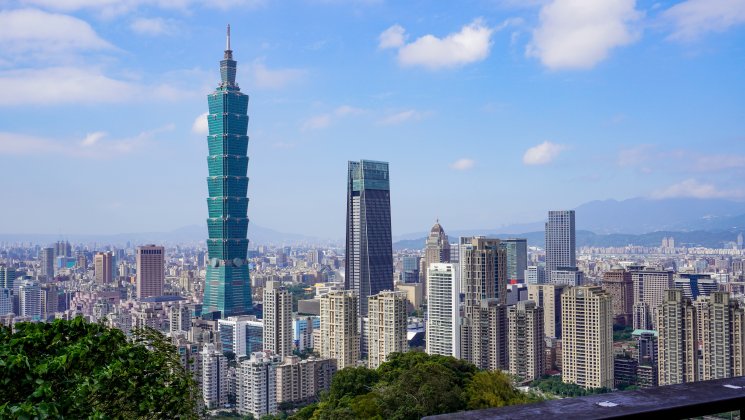-
Faculty of Arts and HumanitiesDean's Office, Faculty of Arts and HumanitiesJakobi 2, r 116-121 51005 Tartu linn, Tartu linn, Tartumaa EST0Institute of History and ArchaeologyJakobi 2 51005 Tartu linn, Tartu linn, Tartumaa EST0Institute of Estonian and General LinguisticsJakobi 2, IV korrus 51005 Tartu linn, Tartu linn, Tartumaa EST0Institute of Philosophy and SemioticsJakobi 2, III korrus, ruumid 302-337 51005 Tartu linn, Tartu linn, Tartumaa EST0Institute of Cultural ResearchÜlikooli 16 51003 Tartu linn, Tartu linn, Tartumaa EST0Institute of Foreign Languages and CulturesLossi 3 51003 Tartu linn, Tartu linn, Tartumaa EST0School of Theology and Religious StudiesÜlikooli 18 50090 Tartu linn, Tartu linn, Tartumaa EST0Viljandi Culture AcademyPosti 1 71004 Viljandi linn, Viljandimaa EST0Professors emeriti, Faculty of Arts and Humanities0Associate Professors emeriti, Faculty of Arts and Humanities0Faculty of Social SciencesDean's Office, Faculty of Social SciencesLossi 36 51003 Tartu linn, Tartu linn, Tartumaa EST0Institute of EducationJakobi 5 51005 Tartu linn, Tartu linn, Tartumaa EST0Johan Skytte Institute of Political StudiesLossi 36, ruum 301 51003 Tartu linn, Tartu linn, Tartumaa EST0School of Economics and Business AdministrationNarva mnt 18 51009 Tartu linn, Tartu linn, Tartumaa EST0Institute of PsychologyNäituse 2 50409 Tartu linn, Tartu linn, Tartumaa EST0School of LawNäituse 20 - 324 50409 Tartu linn, Tartu linn, Tartumaa EST0Institute of Social StudiesLossi 36 51003 Tartu linn, Tartu linn, Tartumaa EST0Narva CollegeRaekoja plats 2 20307 Narva linn, Ida-Virumaa EST0Pärnu CollegeRingi 35 80012 Pärnu linn, Pärnu linn, Pärnumaa EST0Professors emeriti, Faculty of Social Sciences0Associate Professors emeriti, Faculty of Social Sciences0Faculty of MedicineDean's Office, Faculty of MedicineRavila 19 50411 Tartu linn, Tartu linn, Tartumaa ESTInstitute of Biomedicine and Translational MedicineBiomeedikum, Ravila 19 50411 Tartu linn, Tartu linn, Tartumaa ESTInstitute of PharmacyNooruse 1 50411 Tartu linn, Tartu linn, Tartumaa ESTInstitute of DentistryL. Puusepa 1a 50406 Tartu linn, Tartu linn, Tartumaa ESTInstitute of Clinical MedicineL. Puusepa 8 50406 Tartu linn, Tartu linn, Tartumaa ESTInstitute of Family Medicine and Public HealthRavila 19 50411 Tartu linn, Tartu linn, Tartumaa ESTInstitute of Sport Sciences and PhysiotherapyUjula 4 51008 Tartu linn, Tartu linn, Tartumaa ESTProfessors emeriti, Faculty of Medicine0Associate Professors emeriti, Faculty of Medicine0Faculty of Science and TechnologyDean's Office, Faculty of Science and TechnologyVanemuise 46 - 208 51003 Tartu linn, Tartu linn, Tartumaa ESTInstitute of Computer ScienceNarva mnt 18 51009 Tartu linn, Tartu linn, Tartumaa ESTInstitute of GenomicsRiia 23b/2 51010 Tartu linn, Tartu linn, Tartumaa ESTEstonian Marine Institute0Institute of PhysicsInstitute of ChemistryRavila 14a 50411 Tartu linn, Tartu linn, Tartumaa EST0Institute of Mathematics and StatisticsNarva mnt 18 51009 Tartu linn, Tartu linn, Tartumaa EST0Institute of Molecular and Cell BiologyRiia 23, 23b - 134 51010 Tartu linn, Tartu linn, Tartumaa ESTTartu ObservatoryObservatooriumi 1 61602 Tõravere alevik, Nõo vald, Tartumaa EST0Institute of TechnologyNooruse 1 50411 Tartu linn, Tartu linn, Tartumaa ESTInstitute of Ecology and Earth SciencesJ. Liivi tn 2 50409 Tartu linn, Tartu linn, Tartumaa ESTProfessors emeriti, Faculty of Science and Technology0Associate Professors emeriti, Faculty of Science and Technology0Institute of BioengineeringArea of Academic SecretaryHuman Resources OfficeUppsala 6, Lossi 36 51003 Tartu linn, Tartu linn, Tartumaa EST0Area of Head of FinanceFinance Office0Area of Director of AdministrationInformation Technology Office0Administrative OfficeÜlikooli 17 (III korrus) 51005 Tartu linn, Tartu linn, Tartumaa EST0Estates Office0Marketing and Communication OfficeÜlikooli 18, ruumid 102, 104, 209, 210 50090 Tartu linn, Tartu linn, Tartumaa EST0Area of Vice Rector for Academic AffairsOffice of Academic Affairs0University of Tartu Youth AcademyUppsala 10 51003 Tartu linn, Tartu linn, Tartumaa EST0Student Union OfficeÜlikooli 18b 51005 Tartu linn, Tartu linn, Tartumaa EST0Centre for Learning and TeachingArea of Vice Rector for ResearchUniversity of Tartu LibraryW. Struve 1 50091 Tartu linn, Tartu linn, Tartumaa EST0Grant OfficeArea of Vice Rector for DevelopmentCentre for Entrepreneurship and InnovationNarva mnt 18 51009 Tartu linn, Tartu linn, Tartumaa EST0University of Tartu Natural History Museum and Botanical GardenVanemuise 46 51003 Tartu linn, Tartu linn, Tartumaa EST0International Cooperation and Protocol Office0University of Tartu MuseumLossi 25 51003 Tartu linn, Tartu linn, Tartumaa EST0Area of RectorRector's Strategy OfficeInternal Audit Office
Conference "Open and closed societies: historical reasons and modern consequences of inequality in Japan and Europe"

Japan being an advanced state, the world's 3rd economy, and a member of the G7, is often set up as an Asian role model of a liberal and democratic society where the rule of law prevails and human rights are protected and guaranteed to all people. However, on a closer look, every society has its problem topics, and noticing them for the analysis and comparison with other countries with similar issues becomes a crucial starting point to move further in acknowledging and solving the issues of inequality in the modern world.
The conference aims to focus on inequality in education and the labor market. It does that from the perspective of immigration and socially vulnerable groups of minorities and non-citizens by the example of Japan and the countries of the European Union. It aims to offer a platform for the scientific approach and further discussions about the minoritized communities in the multi-layered and divided society where human rights and equality are not always protected, and not everybody is enjoying the social benefits of the democratic society in the same way. The conference and workshop aim to focus on the historical and legal roots of these problems and bring forward multifaceted discussions that only the interstate comparison under the guidance of experts can provide. The issues mentioned above are discussed from an academic perspective, including interactive discussion methods and problem-solving approaches.
Themes
Questions and topics addressed at the conference and workshop include but are not limited to:
- Historical reasons for the inequality in Japan and the EU countries:
- Historical remnants of inequality and their influence and existence in the modern society
- Inadequacies of the legislation (e.g., lack of anti-hate speech legislation)
- Inequality and injustice in the educational system and labor market in Japan and in the EU countries:
- Problems of immigration and foreign workforce, the necessity of foreign workers to meet the labor shortage and the disparity in the labor market
- Problems with the educational system, access to education, and quality
- Discrimination of ethnic minorities in Japan (e.g. the Ainu, the Zainichi Koreans) and social groups (e.g. hibakusha, burakumin) and in the EU countries (e.g. ethnic minorities and minoritized communities based on social status); xenophobia and racism
- Seeking solutions and examples of good practices (e.g., the current refugee crisis in the EU has forced governments and NGOs to act decisively and efficiently)
Registration and Credit Points
For the listening to the presentations and participating at the workshops it is possible to acquire 1 ECT. If you wish to receive the credit point, please register here (deadline October 10th).
Timetable
Day 1: October 13th
8.30-9.00 Conference registration - Lobby
9.00-9.30 Opening words (Dr. Elo Süld, Head of University of Tartu Asia Centre; Prof. Toomas Asser, Rector of University of Tartu; H.E. Mr. Väino Reinart, Ambassador of Estonia to Japan (virtual)) - Room A218-A219
9.30-10.30 1st presentation - Historical background of Japanese migration, legislation, and current refugee policy (Sara Park, lecturer, University of Helsinki) - Room A218-A219
10.30-11.00 Coffee break - Catering area
11.00-12.00 2nd presentation - Diversity and integration of Europeans in Japan - the role of whiteness and conceptual issues (prof. Miloš Debnár, Ryukoku University) - Room A218-A219
12.00-13.00 3rd presentation - Exploring student agency in an ethnically and culturally divided society: the case of Estonia (Maria Erss, research fellow, Tallinn University) - Room A218-A219
13.00-14.00 Lunch - Catering area
14.00-15.00 PhD students' panel (Rennan Okawa, Osaka University; Kristjan Kaldur, University of Tartu) - Room A218-A219
15.00-17.00 Workshops for the MA students facilitated by Hanna Kerstina Kartau and Ilmar Branno - Room A206-A207.
The day is moderated by Mai Beilmann (Associate Professor of Empirical Sociology, Institute of Social Studies)
Day 2: October 14th
9.00-9.10 Welcoming remarks (H.E. Mr. Yukihiko Matsumura, Ambassador of Japan to Estonia) - Room A218-A219
9.10-10.00 1st presentation - Pandemic and socio-economic condition of Immigrants: experience of inclusion and exclusion in Japan (prof. Wako Asato, Kyoto University) - Room A218-A219
10.00-10.30 Coffee break - Catering area
10.30-11.30 2nd presentation - Transnationalism and Socio-Economic Integration in Japan: Chinese Minority and Nikkeijin (prof. David Chiavacci, University of Zurich) - Room A218-A219
11.30-12.30 3rd presentation - Tolerance for Socioeconomic Inequality — Evidence from Japan and Estonia (Joanna Kitsnik, Sophia University) - Room A218-A219
12.30-13.30 Lunch - Catering area
13.30-14.30 PhD students' panel (Mohammad Abu Sayed Toyon, Estonian Business School; Anastasia Sinitsyna, University of Tartu) - Room A218-A219
14.30-16.00 Workshops for the MA students facilitated by Hanna Kerstina Kartau and Ilmar Branno - Room A206-A207
The day is moderated by Tiit Tammaru (Professor of Urban and Population Geography, Institute of Ecology and Earth Sciences)
Here you may find the abstracts and bios of the speakers.
Organiser
The conference is organised by the University of Tartu Asia Centre. In case of any questions or comments, please contact Ene Selart (ene.selart@ut.ee)
Conference "Open and closed societies: historical reasons and modern consequences of inequality in Japan and Europe"
Read more similar news






